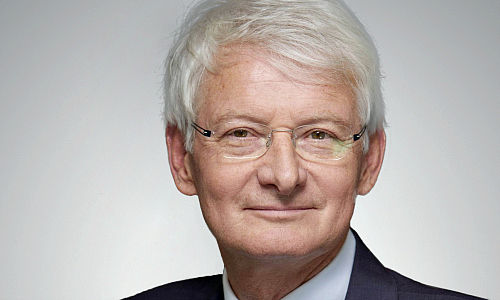So far, we’ve only talked about low rates, not negative rates…
Both low and negative rates have an adverse effect on a large part of the economy.
I mentioned the distinction because criticism of negative rates very often is regret or criticism about low rates. Look at pension funds for instance: their criticism is less about the small amount they have to pay in negative rates. Their problem is that they generate only a low return on the rest of the portfolio.
«The Swiss problem is different»
Theroretically, zero rates are not the limit. In the best of world, you can freely go above and below zero. In that world, you might generate a big stimulus effect through a very deep fall in interest rates (minus 5 or 6 percent). That way it, negative rates wouldn’t last for very long. This works in economic models. The problem is that the world is not like that.
We are stuck at zero, we can go only a bit below zero. And because we can’t go far enough, the impulse is not strong enough, which is why we are stuck and it seems to lasts.
And in Switzerland?
The Swiss problem is different! We need to have an interest rate that is lower than the rates of our neighbors because we have a safe-haven currency. The franc is an insurance policy for the rest of the world. Investors buy Swiss francs because if things don’t go well, the Swiss franc goes up.
The price for this insurance is a negative interest differential. If you buy the franc, you will get less interest than if you buy another currency. So, if other currencies give no interest, we need to have negative interest.
The banks say that the franc isn’t overvalued anymore and therefore there is no need for negative interest.
I asked the head of the Swiss Bankers Association recently if he seriously thought that if the SNB had a higher interest rate than the ECB, it would have no impact on the Swiss franc. He refused to answer.
«The reason why we have central bank independence is to allow them do things that are painful»
But it would have a positive effect on the Swiss franc for sure. It is not enough to say the Swiss franc is not overvalued, the question is: will it be overvalued if the SNB pursues such a strategy. And the answer is: yes, it will be.
You must be very careful when you criticize negative interest rates for Switzerland. We have no choice.
With the persistence of low interest rates, the political pressure is mounting on the SNB. Are you concerned about its independence?
The reason why we have central bank independence is to allow them do things that are painful. If central banks always did what people wanted we would not need independence. Monetary policy always creates winners and losers.
The criticism by banks is self-interest-driven. Banks have a powerful lobby and this lobby expresses its views strongly, because they make less money due to negative interest. This doesn’t mean however that the policy of the central bank is wrong.




































